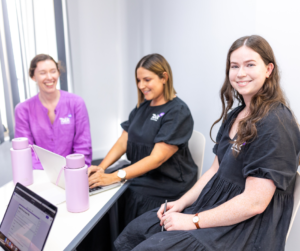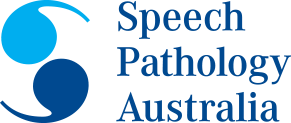Parents often ask, how long does it take to fix my child’s speech?
Truth is, there is no easy answer. This is because the dosage and frequency of therapy can differ depending on your child’s speech condition.
Therapy Dosage
When thinking about dosage, we often think of antibiotics. For example, when the doctor says, “Take these antibiotics three times a day,” we know that dosage is what is needed to help us get better faster. Doctors know this dosage because of the clinical trials that show that three times a day for 7 days was most effective for optimum recovery. When we follow the instructions, we get better faster. The same concept applies to fixing your child’s speech with therapy. The dosage refers to how many times a communication target has to be said (by the parent or child). Your speech pathologist will typically recommend the dosage and frequency that research shows will help fix your child’s speech faster.
Research
While there is still a lot more research to be done around dosage, frequency, and speech pathology, there are certain things that we do know. For example, we know that children with speech sound disorders using the multiple oppositions approach require a dosage of at least 50 trials and a frequency of 30 sessions. Similarly, children who have a diagnosis of Childhood Apraxia of Speech (CAS) who have ReST therapy need a frequency of 4 times a week for 3 weeks OR twice a week for 6 weeks. Weekly therapy is the commonly recommended frequency for language therapy. Research also shows child’s communication gets better faster when there is practice randomly at home or school. For example, when parents can say the target words meaningfully throughout the day, their child’s communication improves a lot faster (but more on that in our follow-up blog).
Therapy approaches targeting early language, stuttering, reading and spelling therapy (such as Sounds-Write), vocabulary therapy, grammar therapy all require at least 45 minutes to 1 hour every week with the speech pathologist. Plus, these skills must be reinforced at home or at school in between therapy sessions.
Fortnightly Appointments
For different reasons, there are only specific times when fortnightly therapy is effective. This is typically when the clients are phasing out of therapy. For example, a child only needs to attend fortnightly or monthly during the maintenance stage of Lidcombe therapy. Some research supports spacing between therapy sessions. However, I am yet to find a paper that recommends fortnightly therapy as a standard frequency. A recent informal survey of speech pathologists revealed that many practices do offer fortnightly sessions however many clinicians admitted that they had observed progress to be slower in most cases. Some clinicians found there was a small percentage of parents who were consistently able to do therapy every day during the fortnightly sessions. They also reported that most parents were not consistent with homework. Home practice is crucial if you want to fix your child’s speech sooner!
Similarly, we used to offer fortnightly appointments but we found anecdotally that parents struggled to get the required dosage of incidental practice between sessions. Kids had to continue to attend therapy for a lot longer and ended up costing parents more money anyway.
So that’s why we don’t do that anymore.
At TalkHQ, we will discuss with you the recommended dosage and help work with you to implement this therapy schedule. This is because we want to help you and your child achieve outcomes faster.
Bootcamp Model
When financial or time commitments make this service delivery difficult for families, we have our TalkHQ Bootcamp option. The Bootcamp model likens therapy to the exercise boot camps that we often participate in.
Families commit to attending weekly and focussing on homework for 10 consecutive weeks. During the 10 week consolidation period, children practice these activities at their own pace. This takes away the time and financial commitment of weekly visits to the speech pathologist.
Feedback from our Bootcamp families has indicated that this has made accessing therapy much more manageable. Best of all, our families and speech pathologists have seen the progress from their weekly sessions.







